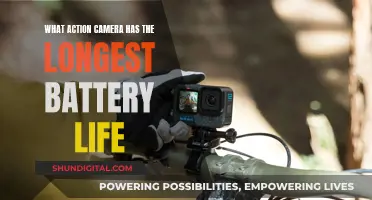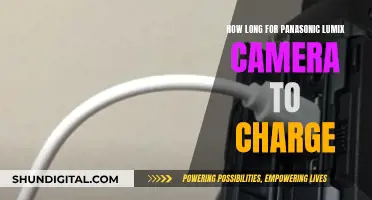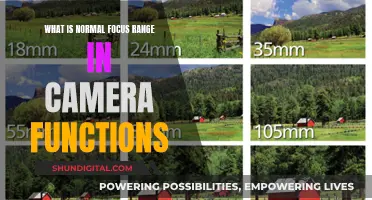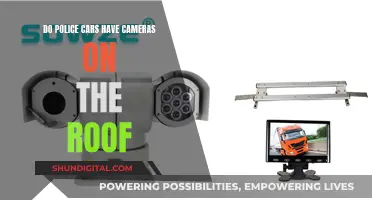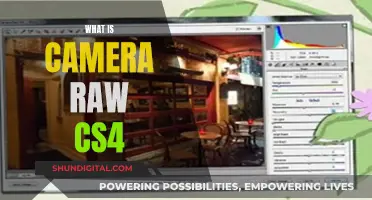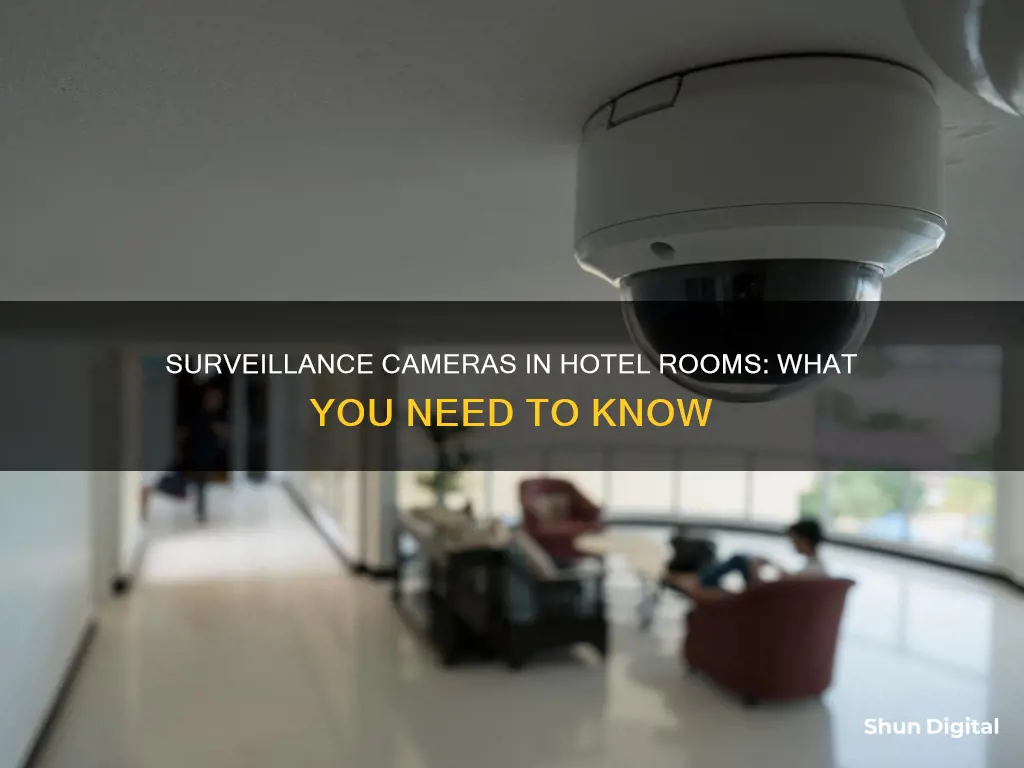
The presence of surveillance cameras in hotel rooms is a concern for many travellers. While hotels do have security cameras in common areas such as lobbies, hallways, and elevators, the placement of cameras in guest rooms is a more complex issue. In most cases, hidden security cameras in hotel rooms are prohibited by law, as it is considered a serious invasion of privacy. However, there may be exceptions in certain jurisdictions, and some security experts warn that rogue hotel employees could hide small cameras in devices like clocks or lamps. To address privacy concerns, guests can perform their own inspections using simple methods or technology, such as scanning for Wi-Fi-connected devices or using a spy camera detector. While the chances of finding hidden cameras in hotel rooms are slim, it is important for guests to be vigilant and report any suspicious activity to hotel management and the police.
| Characteristics | Values |
|---|---|
| Legality | Hotel room surveillance is illegal in many states and countries. |
| Privacy | Surveillance cameras in hotel rooms are considered an invasion of privacy. |
| Safety | Surveillance cameras in common areas of hotels help to deter crime and keep guests safe. |
| Maintenance | The installation and maintenance of security cameras can be costly for hotels. |
| Detection | Hidden cameras can be detected by scanning for radio frequencies, checking for reflective glass, and looking for connected devices on Wi-Fi networks. |
What You'll Learn

Laws surrounding the use of hidden recording devices in hotel rooms
The use of hidden recording devices in hotel rooms is a complex issue that varies across different jurisdictions. While it is generally illegal to record guests without their consent, the specific laws and regulations regarding hidden camera usage differ between countries and states. Here is an overview of the laws surrounding this topic:
In the United States, federal wiretapping statutes make it illegal in every state to audio record anyone without their knowledge or consent. However, there is currently no federal law pertaining specifically to hidden camera usage. This lack of federal legislation means that individual states have the power to create their own laws regarding this issue. Currently, about 13 states have made it illegal to install or use hidden cameras in private areas, such as hotel rooms, without authorisation from the individuals being recorded. These laws protect guests' privacy and ensure that their private spaces remain free from unauthorised surveillance.
However, it is important to note that these laws do not prevent all forms of hotel room surveillance. Hotels may still place cameras in common and shared areas, such as lobbies, hallways, and pool areas. These areas are considered public spaces, and hotels often implement security protocols that include the use of security cameras in these locations. Additionally, while hidden cameras in hotel rooms are generally prohibited, other forms of surveillance, such as hidden microphones, may still be utilised.
To comply with the law and respect guests' privacy, hotels should ensure that any surveillance equipment is placed only in public areas and that guests are made aware of the presence of cameras through signage or other means. Hotels that discover hidden cameras placed by unauthorised individuals or employees should take immediate action to address the situation, including conducting thorough investigations and cooperating with law enforcement.
In summary, the laws surrounding the use of hidden recording devices in hotel rooms vary across different regions, with some states having more stringent regulations than others. While audio recording without consent is illegal nationwide in the US, the absence of federal law regarding hidden cameras leaves room for state-level legislation. Guests who suspect unauthorised surveillance should report their concerns to hotel management and, if necessary, contact the appropriate authorities.
Low Power Mode: Impact on Camera Quality
You may want to see also

Where to find hidden cameras in hotel rooms
While it is illegal to have hidden cameras in hotel rooms, some people may still try to install them. Here are some ways to find hidden cameras in your hotel room:
Conduct a physical search
Start your search in areas like the bathroom and bedroom. Most spy cameras are concealed in everyday household items such as alarm clocks, clock radios, lamps, and lights. Unplug these items and put them in a drawer or cover them with a towel. You can also shine a bright light on objects to check for a camera lens, which will usually shine with a blue or purple tint.
Look at the Wi-Fi network
Hidden cameras need to be connected to a Wi-Fi network to be viewed remotely. Use a Wi-Fi scanning app like Fing to identify devices on the network that are cameras. You can also use apps like WiGLE to find devices broadcasting a Bluetooth or Wi-Fi network name.
Use a spy camera detector
If all else fails, you can buy a spy camera detector online. These detectors scan for radio frequencies connected to hidden cameras. However, this method only works if the camera is transmitting data. Many hidden cameras now use SD cards to store data, so they are more difficult to detect.
If you do find a hidden camera in your hotel room, do not attempt to remove or disable it. Instead, cover it with a towel or blanket and alert hotel management and the police. Request a different room or a refund, and contact your travel booking service to report the incident.
Night Mode Camera: iOS 13's Best Feature?
You may want to see also

What to do if you find a hidden camera in your hotel room
Finding a hidden camera in your hotel room can be a disturbing experience, and it is understandable to feel a sense of violation and worry. Here is a list of steps you can take to address the situation:
Do not touch or remove the camera:
It is important to leave the camera untouched and in its original place. Law enforcement may need to collect fingerprints or other forensic evidence from the device. Additionally, the camera may contain an SD card or other storage device that can be used as evidence.
Cover the camera:
Use a towel, blanket, or any other available item to cover the camera without touching it directly. This will ensure your privacy while you take the next steps.
Alert hotel management:
Immediately contact the hotel management and inform them of your discovery. They will take the necessary steps to address the situation and may involve the police. If you are staying in a private vacation rental, it is advisable to leave the premises before contacting the authorities.
Request a different room or a refund:
After informing hotel management, you can request to be moved to a different room or ask for a full refund so you can book a room at another hotel. Explain the situation, and they should accommodate your request.
Contact your travel booking service:
It is important to report the incident to your travel booking service or agency. They can provide additional support and assistance in dealing with the situation. They may also have procedures in place to help ensure your safety and security.
Consider involving law enforcement:
If you feel unsafe or believe a crime has been committed, you may want to contact local law enforcement. They can investigate the matter and take appropriate action against the person responsible.
Remember, your privacy and security are of utmost importance. By following these steps, you can protect yourself and help hold accountable those who invade your privacy.
Charging Your Sanyo E1090: Quick and Easy Guide
You may want to see also

Why hidden cameras are placed in hotel rooms
Hidden cameras in hotel rooms are a rare occurrence, but they are not unheard of. There are a few reasons why someone might place a hidden camera in a hotel room:
Surveillance by Hotel Management
Hotel management may place hidden cameras in hotel rooms for security and surveillance purposes. While this is illegal in many places, some jurisdictions do allow hidden cameras in hotel rooms for security reasons. Hotels may use this as a way to monitor guest activity and ensure their safety. However, it is important to note that most hotels do not engage in this practice as it violates the privacy of their guests.
Criminal Activity
In some cases, hidden cameras may be placed in hotel rooms by criminals or rogue hotel employees without the knowledge of the hotel. These individuals may be targeting high-profile guests, such as celebrities or politicians, in hopes of capturing intimate photos or videos. However, the chances of this happening are slim, especially for ordinary travellers.
Monitoring by Previous Guests
In rare instances, previous guests may tamper with the room and leave behind hidden cameras. These cameras could be used for various malicious purposes, such as spying or extortion.
To Improve Customer Service
Hotels may use hidden cameras to monitor guest activity and improve their services. For example, by tracking when guests enter and exit their rooms, hotels can ensure that rooms are clean and ready for incoming guests.
It is important to note that the presence of hidden cameras in hotel rooms is generally illegal and considered a serious invasion of privacy. If you suspect the presence of a hidden camera, you can perform a physical search, check the Wi-Fi network, or use a spy camera detector to locate it. If you do find a hidden camera, it is important to report it to the authorities and the hotel management.
Zumimall Camera Charging Time: How Long Should You Wait?
You may want to see also

The benefits of hotel security cameras
Improved Security
Hotel crimes are on the rise, with NYPD data showing a 19.3% increase in hotel and motel crime between 2011 and 2015. Security cameras are an effective way to deter crime and improve security in hotels. They can monitor activity in and around the hotel, helping to identify potential security risks and prevent criminal activity. This not only keeps guests safe but also creates a relaxing atmosphere, encouraging guests to spend more during their stay.
Loss Prevention
Security cameras can assist in loss prevention by providing visibility in "hidden areas" and preventing theft by employees or customers. This can include a wide range of unethical activities such as food or bar shrink, missing cash, or non-hotel guests using amenities.
Evidence for Legal Issues
Video evidence from security cameras can be immensely useful in legal cases, such as when dealing with slip-and-fall incidents or employee injuries. It can also help protect hotels from false claims, senseless lawsuits, and liability claims, saving them significant amounts of money.
Enhanced Customer Service
Hotel security cameras can be used to monitor guest activity, such as when they come and go from their rooms. This information can be used to improve customer service, such as ensuring rooms are ready when guests arrive or reducing wait times for elevators.
Maintaining Competitiveness
Hotels with security cameras can deliver a stable and enjoyable environment, reducing the likelihood of disruptive events occurring during a guest's stay. This can lead to increased customer loyalty and recurring revenue. In today's world, consumers expect hotels to embrace modern technology, and security cameras communicate that the hotel values safety and the guest experience.
Charging Your Gear 360: A Quick Guide to Powering Up
You may want to see also
Frequently asked questions
Hotel room surveillance is illegal in many places. Security cameras are generally allowed in public areas such as lobbies, elevators, and receptions.
There are several ways to check for hidden cameras. You can look for unknown plugged-in devices, scan the Wi-Fi network for connected devices, or use a spy camera detector to scan for radio frequencies.
If you find a hidden camera, do not attempt to remove or disable it. Alert hotel management and call the police. Request a different room or a refund, and contact your travel booking service to report the incident.
Airbnb hosts are allowed to have cameras in their houses, but they must be placed in common areas and guests must be informed.


